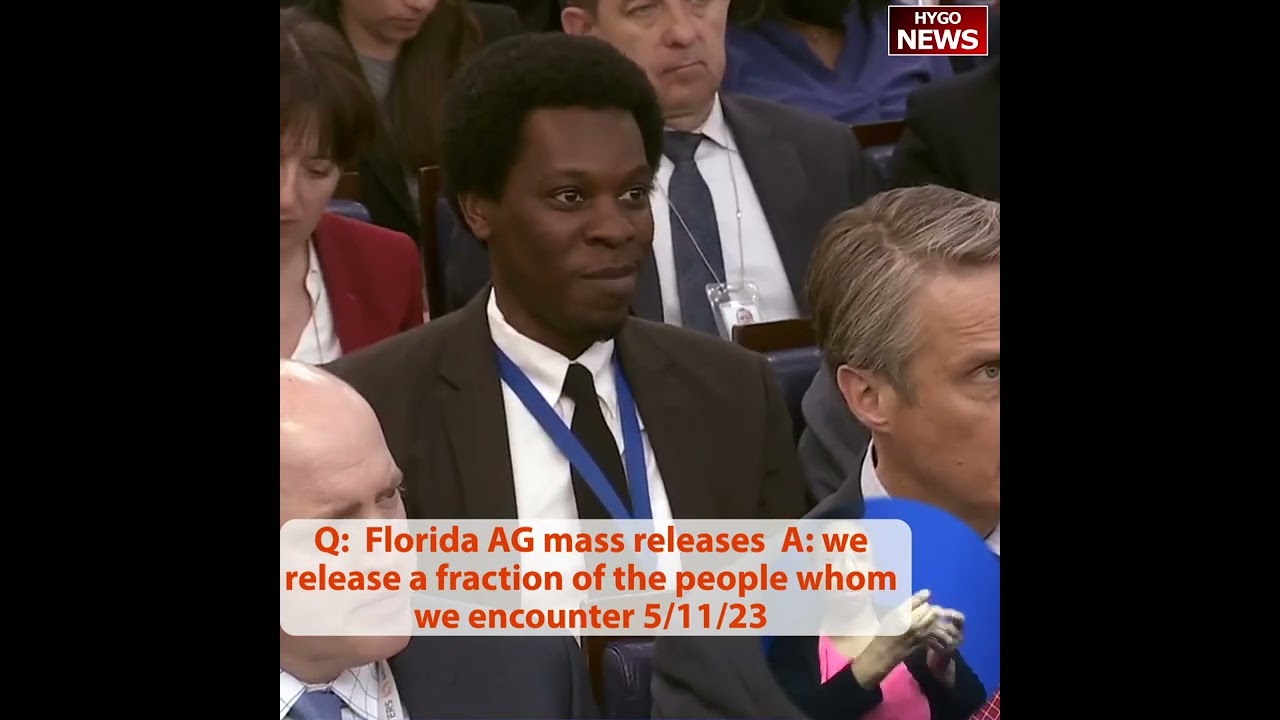Q: border is not open: 1M apprehensions, 530,000 “got-aways.” A: Ask those 1.4 million people
Reporter: Republicans have challenged you on this point on Capitol Hill, and I wanted to give you an opportunity to respond. You know, they point to Border Patrol’s own numbers, which show that, going back to October of last year, there were more than a million apprehensions, but then there were also more than 530,000 “got-aways.” That’s roughly the size of the population of the city of Baltimore. How can you say that the border is not open?
MAYORKAS: So, we removed, returned, and expelled 1.4 million people last year. Ask those 1.4 million people if — if they think the border is open. Our apprehension rate at the border is consistent with the appreha- — apprehension rate in prior years —
Reporter: in El Paso, they’ve declared a state of emergency, but we’ve also seen this in other cities like New York and Chicago. I’m wondering, while so much of the focus is on the southern border itself, can you tell us more about the steps that DHS is taking to support those cities elsewhere as, you know, this surge affects not just that geography but other cities and states across the country?
MAYORKAS: I would say the — a number of things. Number one, we’re grateful to Leader Schumer and Congress for the Emergency Food and Shelter Program funding in the omnibus this past December of $800 million. That’s a significant increase over the prior year’s funding of $150 million.
We’re working very closely with cities and communities along the border and in the interior of the United States. We need the system fixed.
Q: Florida AG mass releases A: we release a fraction of the people whom we encounter
Reporter: Back to the question of mass releases. I know you’ve pushed back against that, but the Florida attorney general has filed a lawsuit against you, alleging that you are about to conduct a policy of mass releases with the news that was released yesterday. What’s your response to that? And more broadly, what’s your message to the judicial branch, who is playing a role in this process as well?
MAYORKAS: … It is — it is interesting to see some of the tools that we employ that are successful or operationally needed to be challenged at the — in — in the courts … so our parole authority, when we use it to release a fraction of the people whom we encounter and that is challenged, I question the motives of the plaintiffs.
Q: Emergency Food and Shelter Program A: last Friday we distributed $332 million
Reporter: Following up on the Emergency Food and Shelter Program that you just mentioned. Groups in El Paso that are helping to feed and house this influx of migrants, they say this program has a problem in that the funding can only be used to help migrants who have encountered DHS and been processed. Is that requirement realistic to the situation that these communities are facing?
MAYORKAS: It is — it is necessary. And I should say, this past Friday, under the Emergency Food and Shelter Program, we distributed $332 million, primarily to border communities. We now have — under the new structure that the omnibus that Congress equipped us with, we now have the Shelter and Services Program that we in the Department of Homeland Security will control. That will prove, I think, more nimble. And we, I think, have 363 —
Reporter: But that still will have that same restriction, that it has to be — can only be used for migrants who have been processed. So what about those that have not been processed? Is that not — is there no way to help with addressing the humanitarian need there?
MAYORKAS: So, to — just to finish my thought, I think we have about $363 million to distribute through the Shelter and Services Program. And I believe that nongovernmental organizations in the cities address the needs of individuals who have not been processed.
Q: Emergency Food and Shelter Program A: last Friday we distributed $332 million
Reporter: Following up on the Emergency Food and Shelter Program that you just mentioned. Groups in El Paso that are helping to feed and house this influx of migrants, they say this program has a problem in that the funding can only be used to help migrants who have encountered DHS and been processed. Is that requirement realistic to the situation that these communities are facing?
MAYORKAS: It is — it is necessary. And I should say, this past Friday, under the Emergency Food and Shelter Program, we distributed $332 million, primarily to border communities.
Reporter: But that still will have that same restriction, that it has to be — can only be used for migrants who have been processed. So what about those that have not been processed? is there no way to help with addressing the humanitarian need there?
MAYORKAS: $363 million Shelter
https://www.facebook.com/HygoNewsUSA/videos/1307633126842722
Border Not Open but 1M Apprehensions & 530K ‘Got-Aways, $800 million free Food & Shelter

